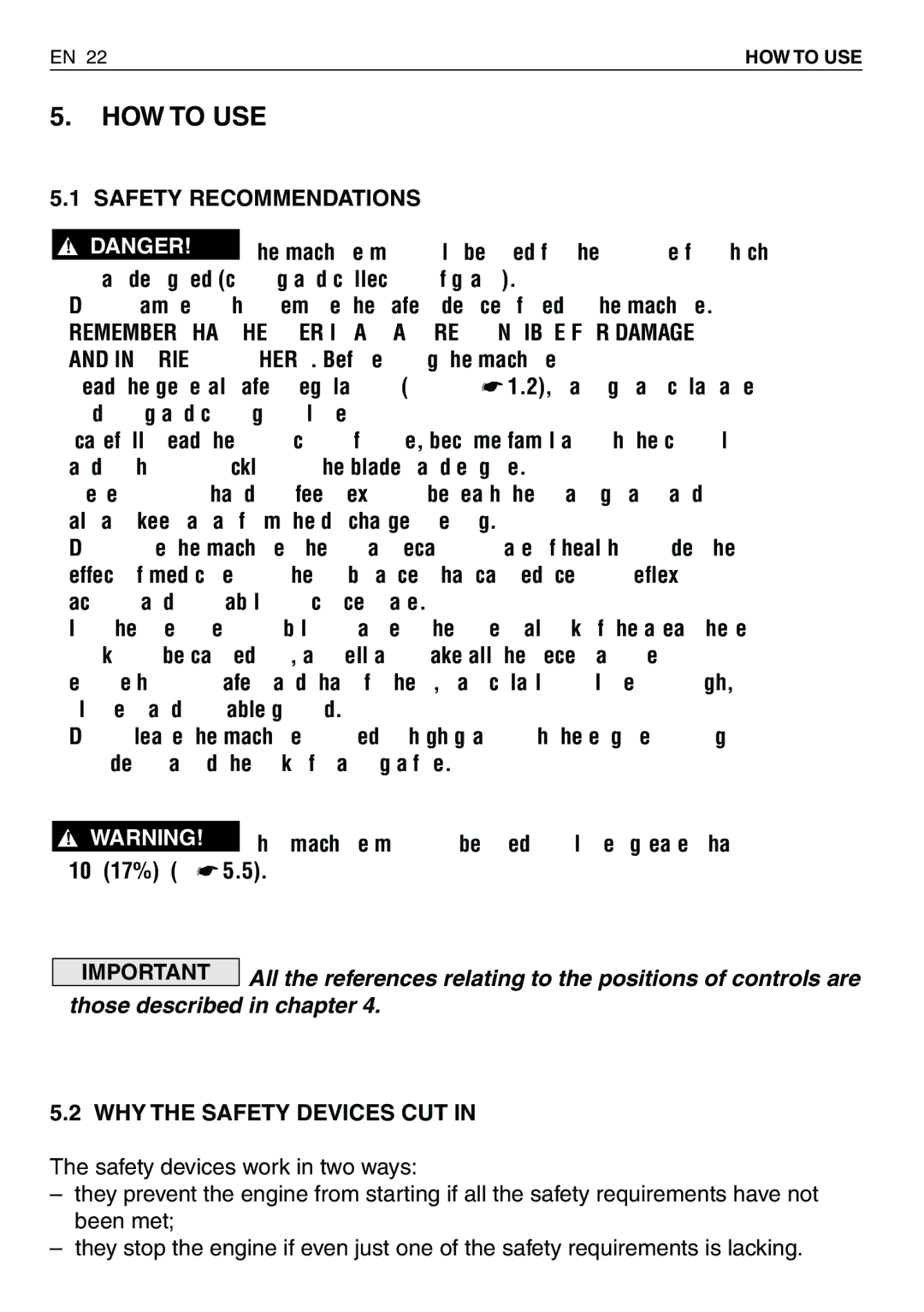HF2315SBE, HF2417HME, HF2315HME, HF2620HTE, HF2415SBE specifications
Honda Power Equipment has long been a trusted name in the outdoor power equipment industry, known for its innovative technology, reliability, and performance. Among its impressive lineup, the HF2417HTE, HF2620HME, HF2415SBE, HF2620HTE, and HF2315HME stand out as excellent options for both residential and commercial users, providing versatile and efficient solutions for landscaping and lawn care.The HF2417HTE is tailored for those seeking high performance in a compact design. With a powerful 17 HP engine, it excels in heavy-duty applications while maintaining fuel efficiency. Its Hydrostatic Drive system guarantees smooth operation, allowing users to maneuver effortlessly across various terrains. The intuitive controls ensure ease of use, making it an ideal choice for both seasoned and novice operators.
Next up, the HF2620HME offers an even more robust solution. Boasting a 20 HP engine, this model is perfect for larger properties and commercial landscaping tasks. Its innovative features include a variable speed control that offers flexibility and precision, enabling operators to tackle different grass types and conditions seamlessly. The reinforced chassis enhances durability, ensuring a longer lifespan for the equipment while reducing maintenance needs.
The HF2415SBE is a lighter alternative, designed for smaller yards or gardens. Despite its smaller engine, it does not compromise on performance. This model features an easy-start mechanism and a user-friendly interface that simplifies operation. Additionally, its compact size allows for easy storage and maneuverability in tighter spaces, making it a great choice for home gardeners.
For those seeking advanced capabilities, the HF2620HTE is a standout. It includes Honda's advanced Auto Choke System, which eliminates the need for manual adjustment, leading to a more efficient start-up process, especially in varying weather conditions. This model also features enhanced noise reduction technology, making it quieter during operation, which is particularly beneficial for residential neighborhoods.
Lastly, the HF2315HME combines power with efficiency. Designed for those who require a robust yet manageable option, this model features a 15 HP engine, ideal for small to medium-sized properties. Its user-friendly design includes an ergonomic seat and controls, fostering comfort during longer work sessions.
Overall, Honda’s HF series offers a range of innovative features and robust designs catered to different landscaping needs, ensuring high performance, reliability, and user satisfaction in lawn care and maintenance.
